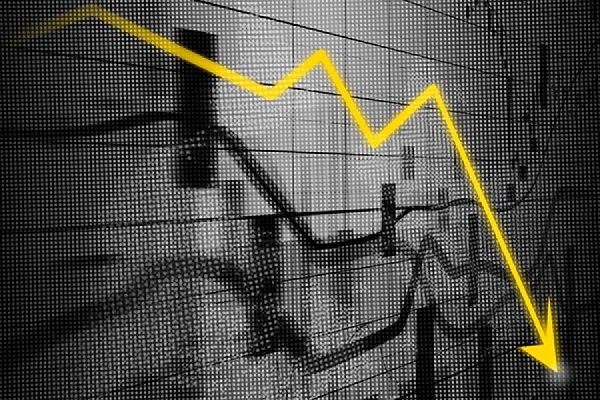Half of UK businesses expect a recession in 2020
Biggest risk cited was geopolitical tensions, including trade tariffs, Brexit and regional instability.
20th January 2020 12:30
by Tom Bailey from interactive investor
Biggest risk cited was geopolitical tensions, including trade tariffs, Brexit and regional instability.

Around half of British businesses say they expect the UK to enter into recession in 2020, according to new research from Stenn, a finance firm.
In total, 46% of UK firms surveyed predicted a recession. The biggest risk cited was geopolitical tensions, including trade tariffs, Brexit and regional instability.
Of those surveyed, 14% said they expect the economy to contract in the range of 1% to 3%, while 6% said they expected economic growth to remain flat in 2020.
The survey comes as the latest data from the Office of National Statistics shows the UK economy grew by just 0.1% in the three months to end of November 2019. While growth in September and October turned out to be stronger than expected, a particularly weak November dragged down the overall growth rate of the three-month period, marking the weakest economic growth since 2012.
According to Dr Kerstin Braun, president of Stenn Group: “The prolonged uncertainty has been battling the UK economy and many businesses are concerned Brexit could cause the economy to shrink in 2020.
“It is vital UK firms start investing again as they exit Brexit limbo. This is critical for long-term growth. If current political and economic uncertainties ease, we could see a gradual revival in activity over the course of the year, likely by 1 or 2%.”
The news increased speculation that the Bank of England's Monetary Policy Committee would be forced to cut rates. As a result, the pound weakened.
The UK businesses surveyed, however, were also bearish about the prospects of the global economy. In total, 37% of those surveyed said they expected to see a global recession in 2020.
This pessimism among UK businesses was mirrored by US-based firms, with 45% of those surveyed saying they expect their own country to enter recession in 2020. In addition, 15% said they expected the economy to shrink by between 1% to 3%.
As for the big risks US firms cited geopolitical tension, increased environmental concerns, and changing consumer behaviour with equal weighting (all 54%). A further 51% said the threat of cyber-attacks or data breaches was the top risk to businesses in 2020.
In contrast to US and UK firms, Chinese-based businesses were much more bullish. The survey found that 93% of Chinese firms were confident that their economy will continue to grow in 2020, with the most common estimation being growth of 6-7% (the Communist Party of China has an economic growth target of 6%).
At the same time, a majority of Chinese companies (65%) cited changing consumer behaviour as the biggest risk to economic growth in 2020. A global recession or international financial crisis was cited as the second biggest risk, followed by an escalation of the trade war.
Full performance can be found on the company or index summary page on the interactive investor website. Simply click on the company's or index name highlighted in the article.
This article was originally published in our sister magazine Money Observer, which ceased publication in August 2020.
These articles are provided for information purposes only. Occasionally, an opinion about whether to buy or sell a specific investment may be provided by third parties. The content is not intended to be a personal recommendation to buy or sell any financial instrument or product, or to adopt any investment strategy as it is not provided based on an assessment of your investing knowledge and experience, your financial situation or your investment objectives. The value of your investments, and the income derived from them, may go down as well as up. You may not get back all the money that you invest. The investments referred to in this article may not be suitable for all investors, and if in doubt, an investor should seek advice from a qualified investment adviser.
Full performance can be found on the company or index summary page on the interactive investor website. Simply click on the company's or index name highlighted in the article.
These articles are provided for information purposes only. Occasionally, an opinion about whether to buy or sell a specific investment may be provided by third parties. The content is not intended to be a personal recommendation to buy or sell any financial instrument or product, or to adopt any investment strategy as it is not provided based on an assessment of your investing knowledge and experience, your financial situation or your investment objectives. The value of your investments, and the income derived from them, may go down as well as up. You may not get back all the money that you invest. The investments referred to in this article may not be suitable for all investors, and if in doubt, an investor should seek advice from a qualified investment adviser.
Full performance can be found on the company or index summary page on the interactive investor website. Simply click on the company's or index name highlighted in the article.